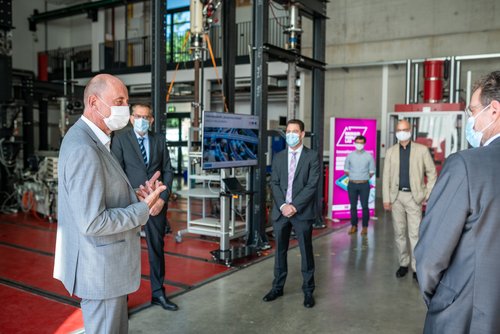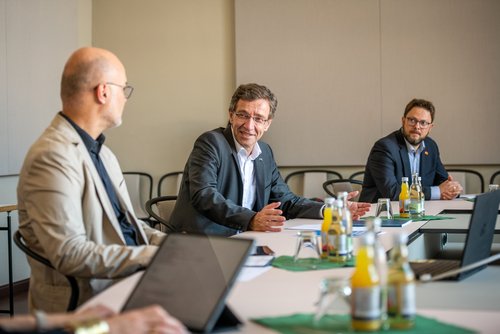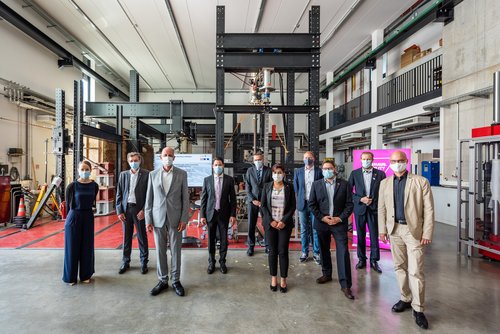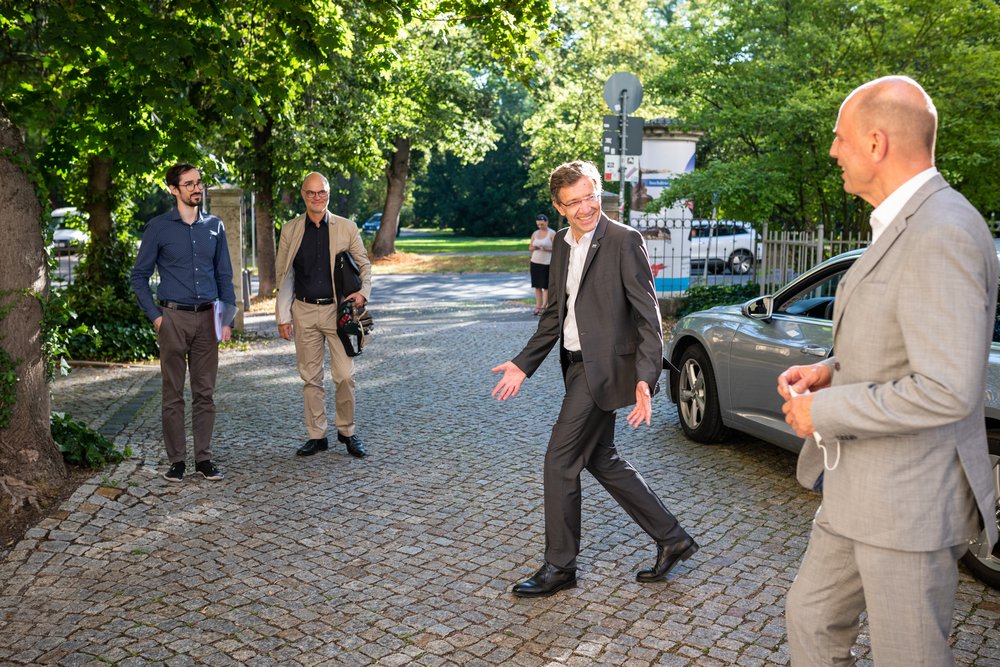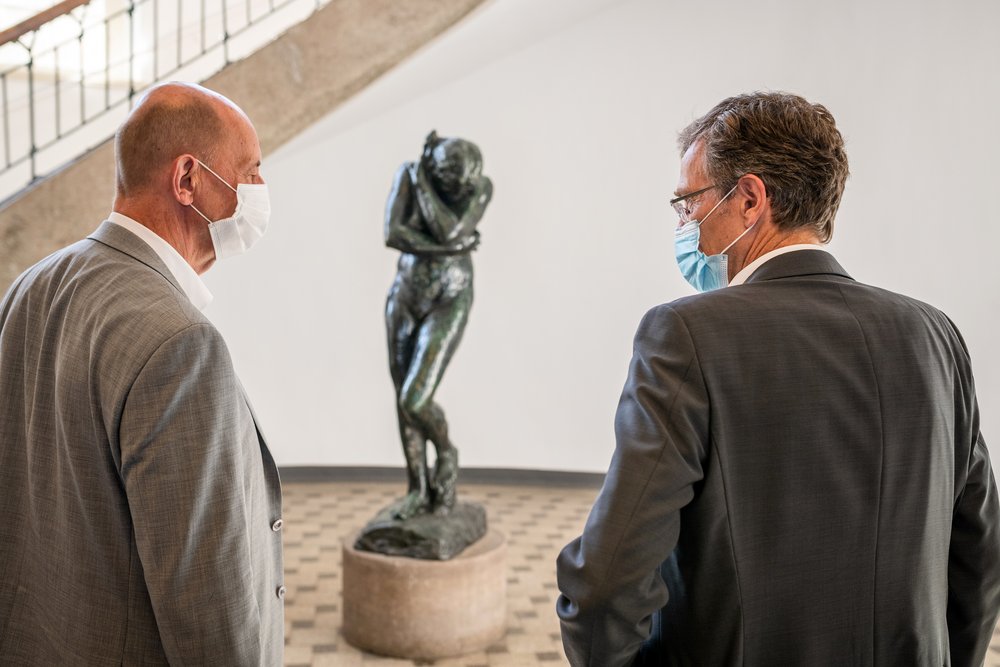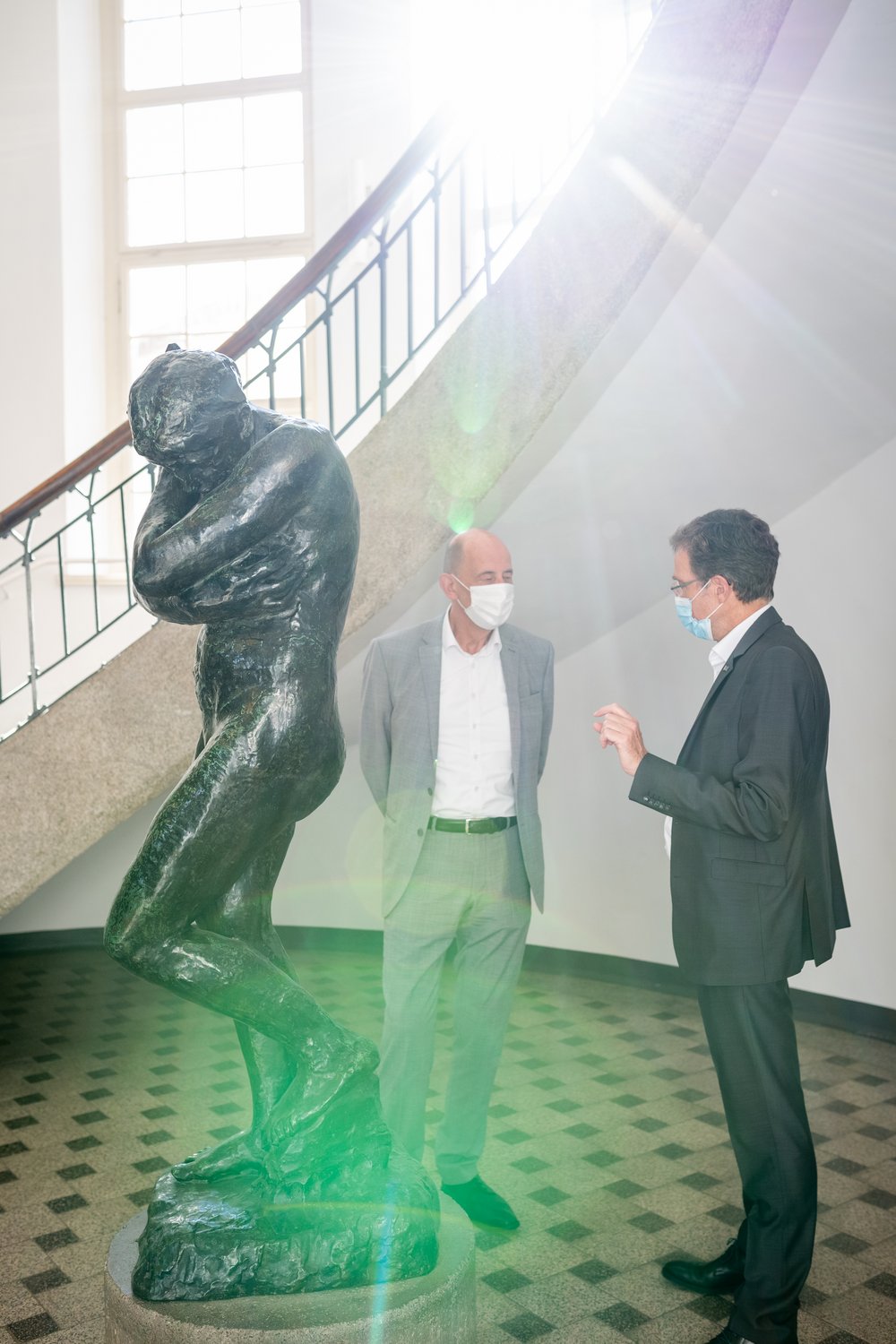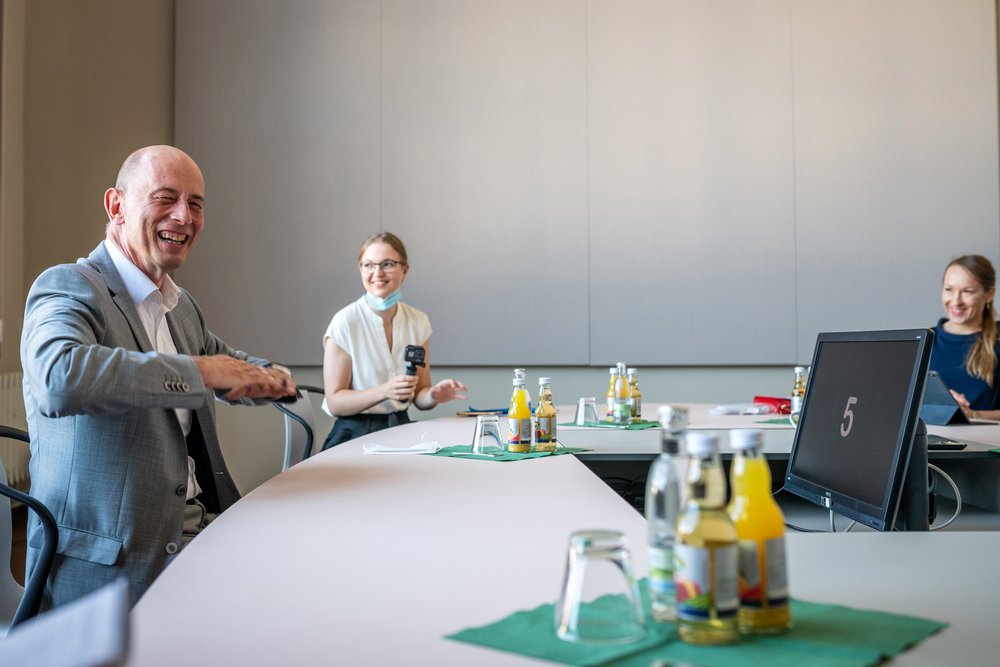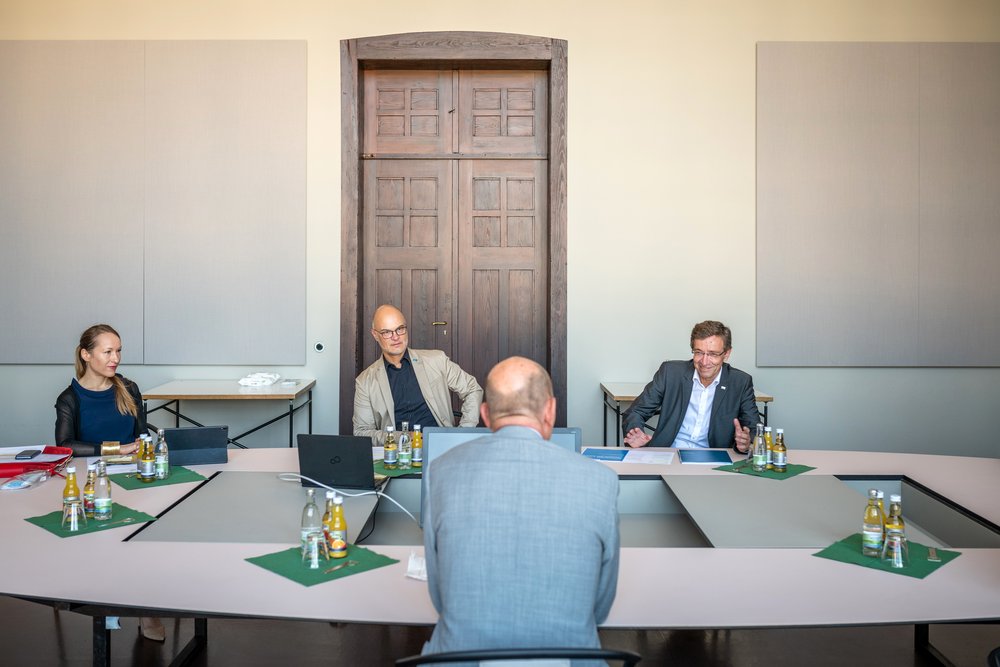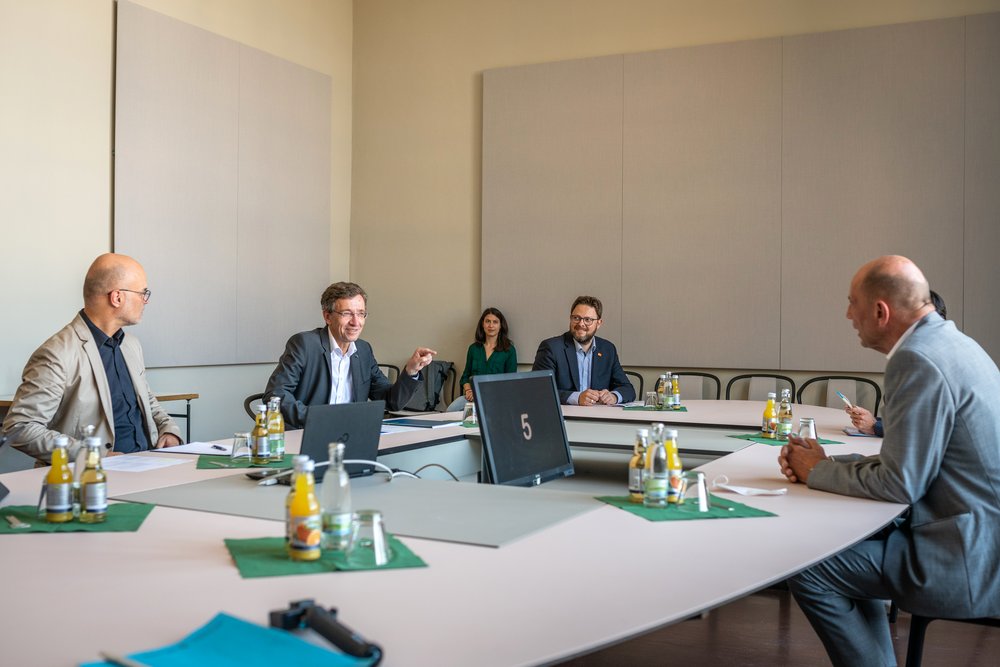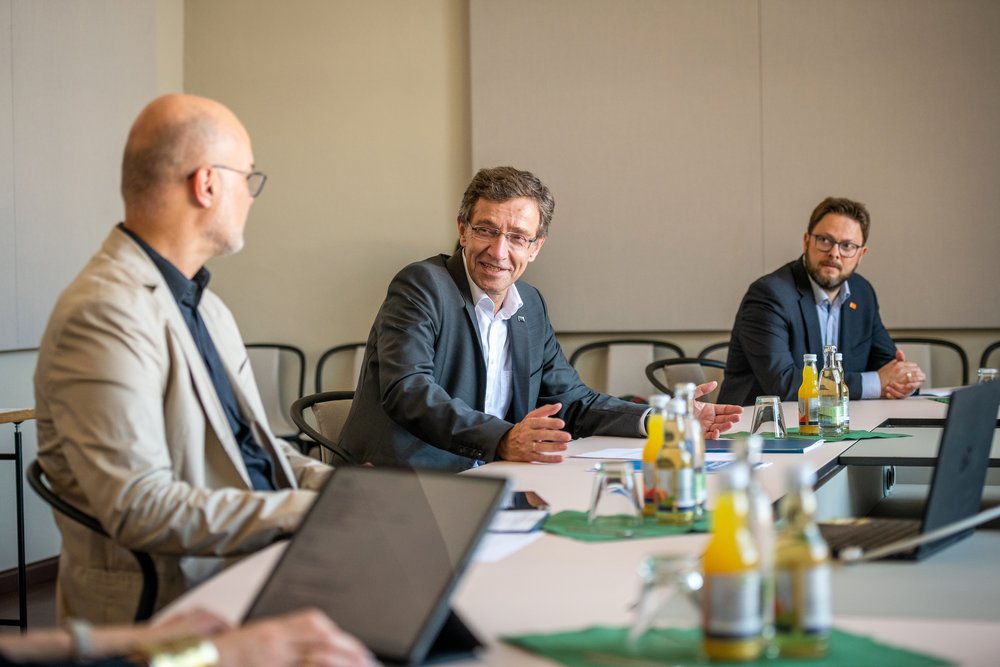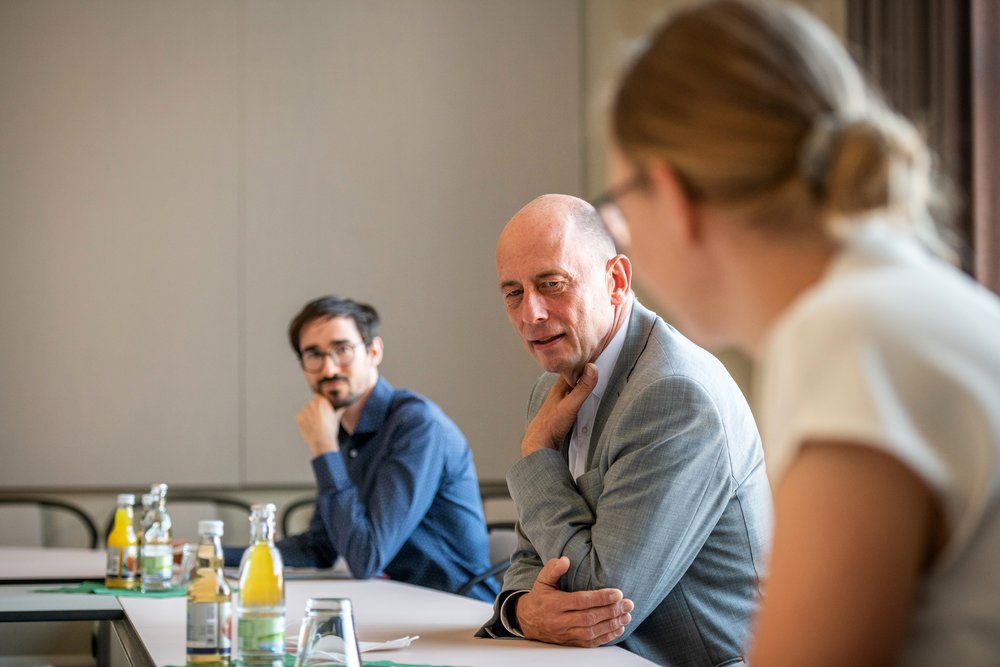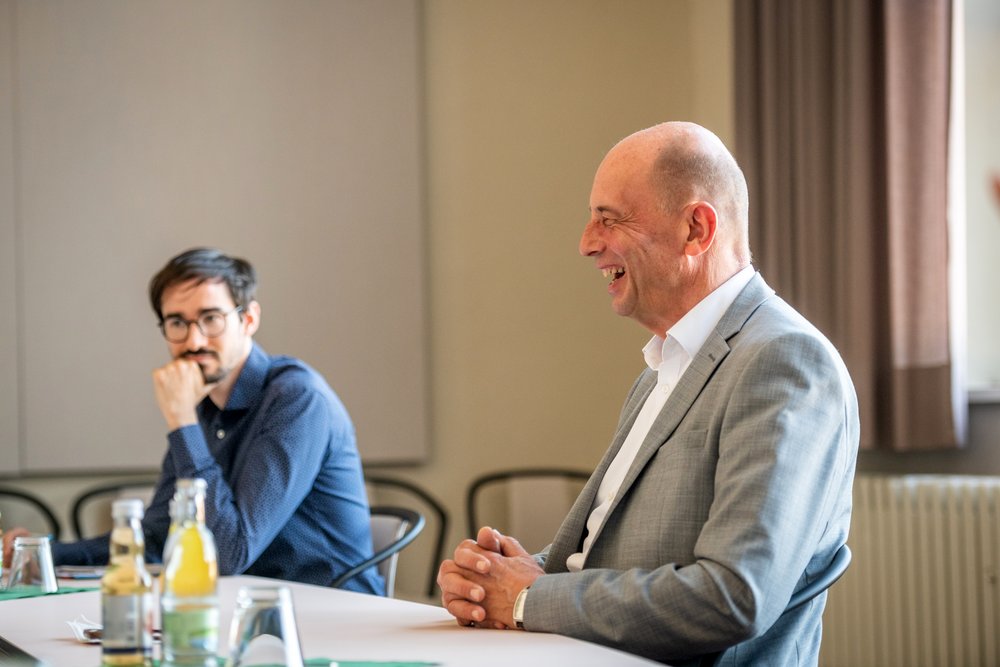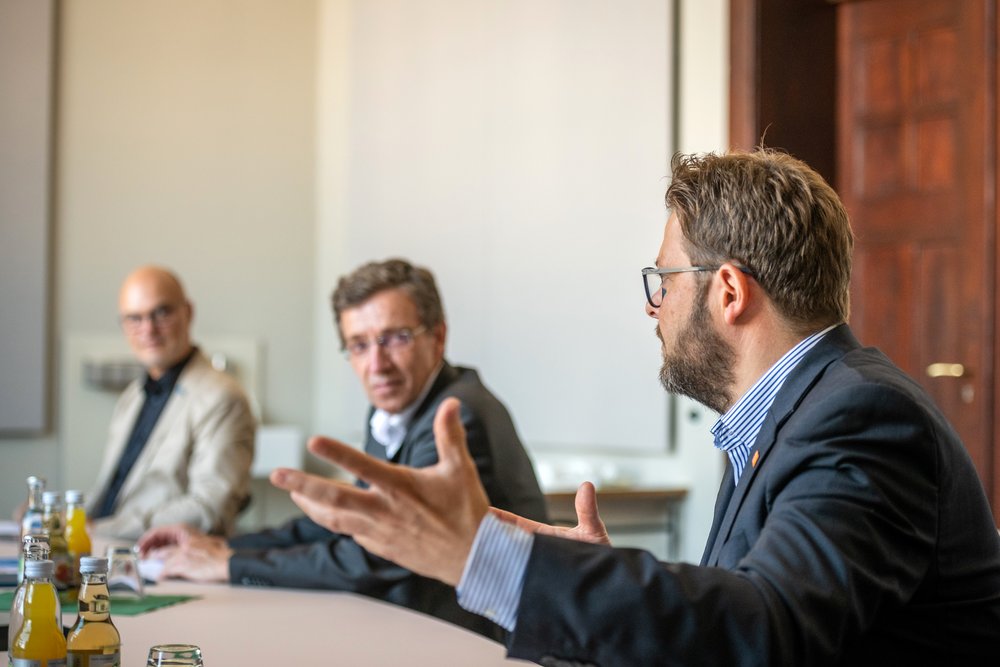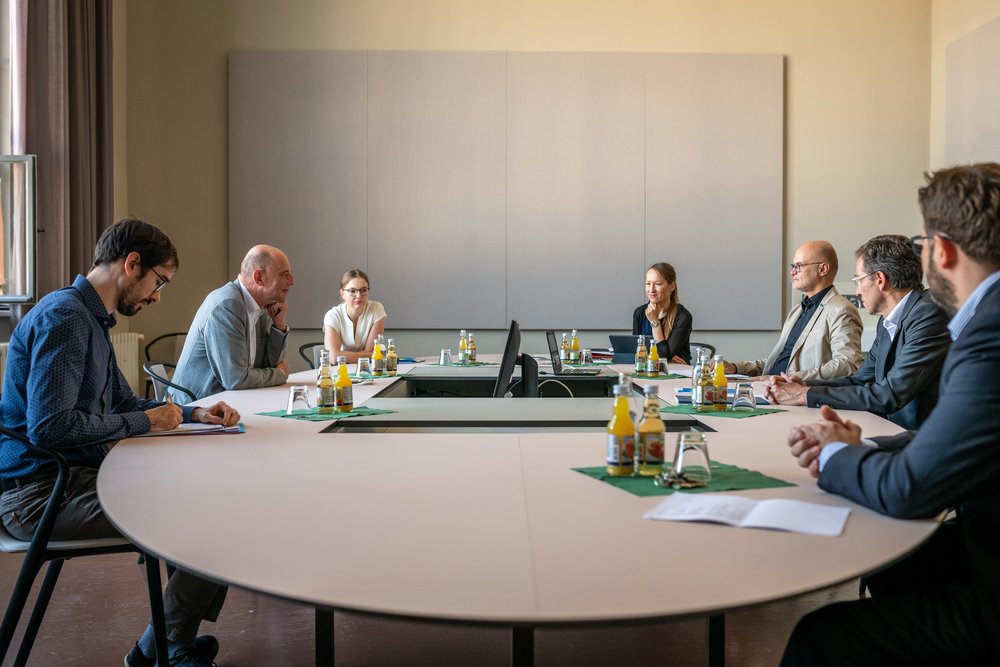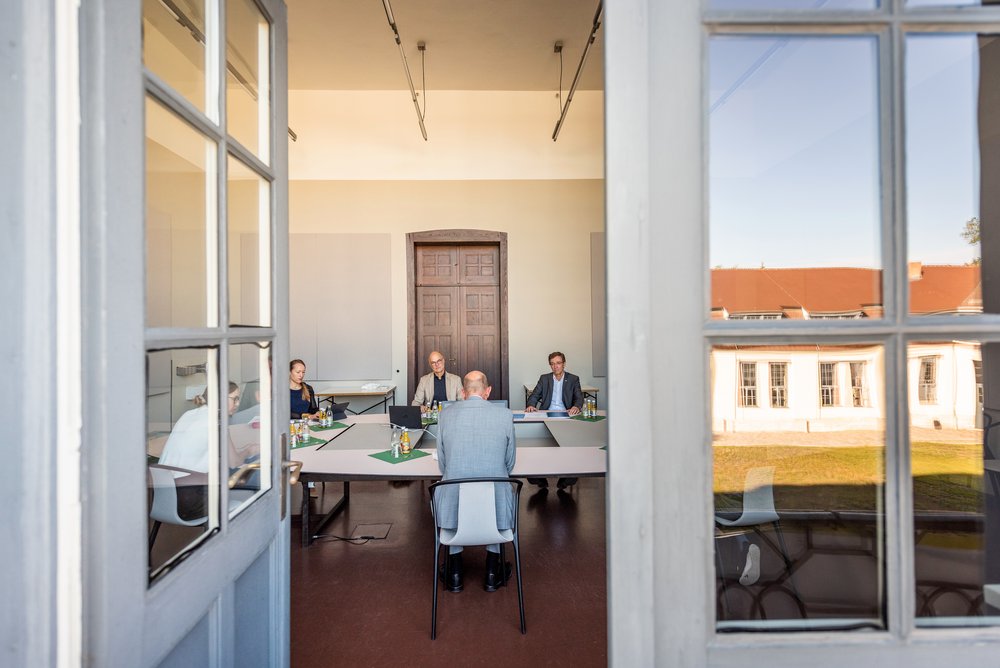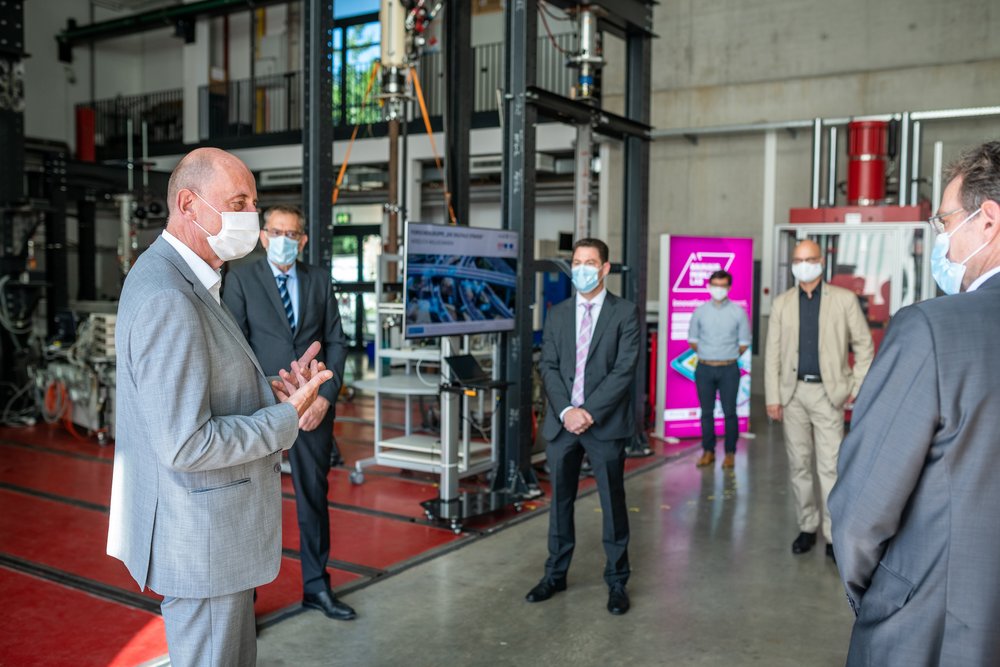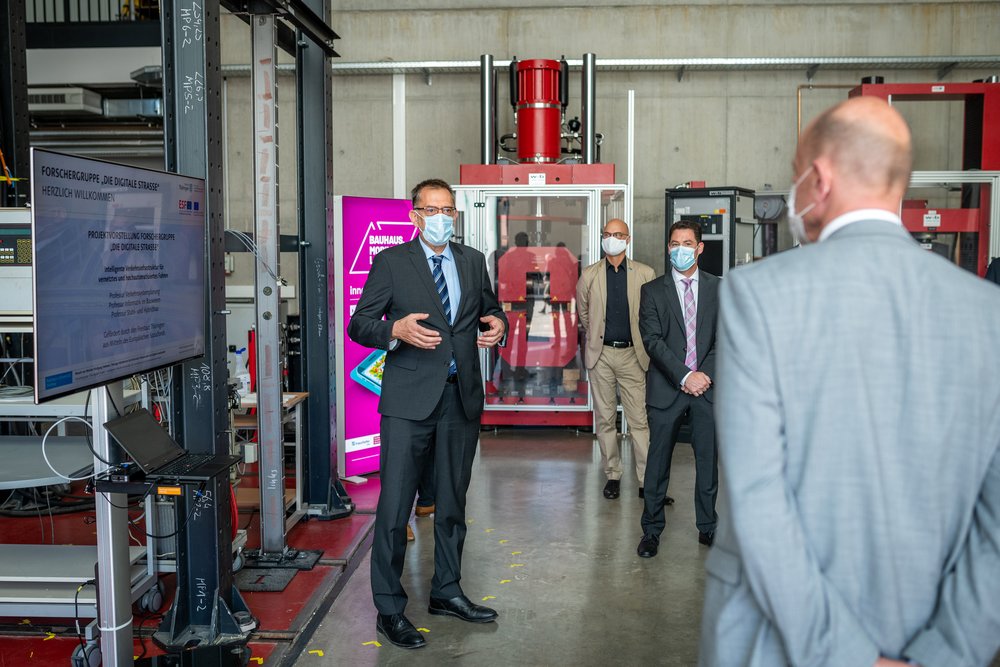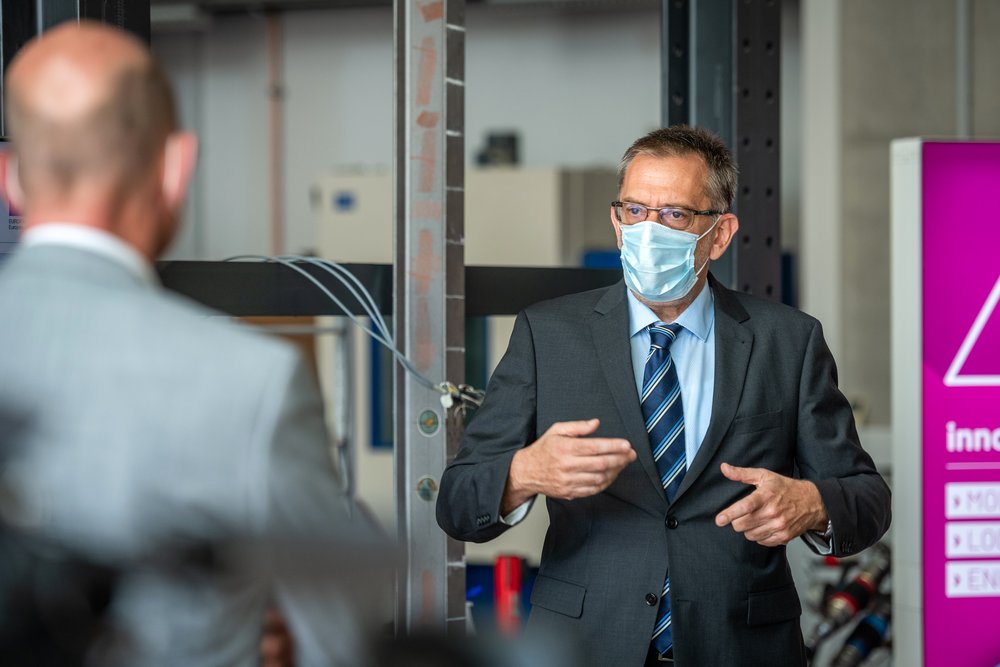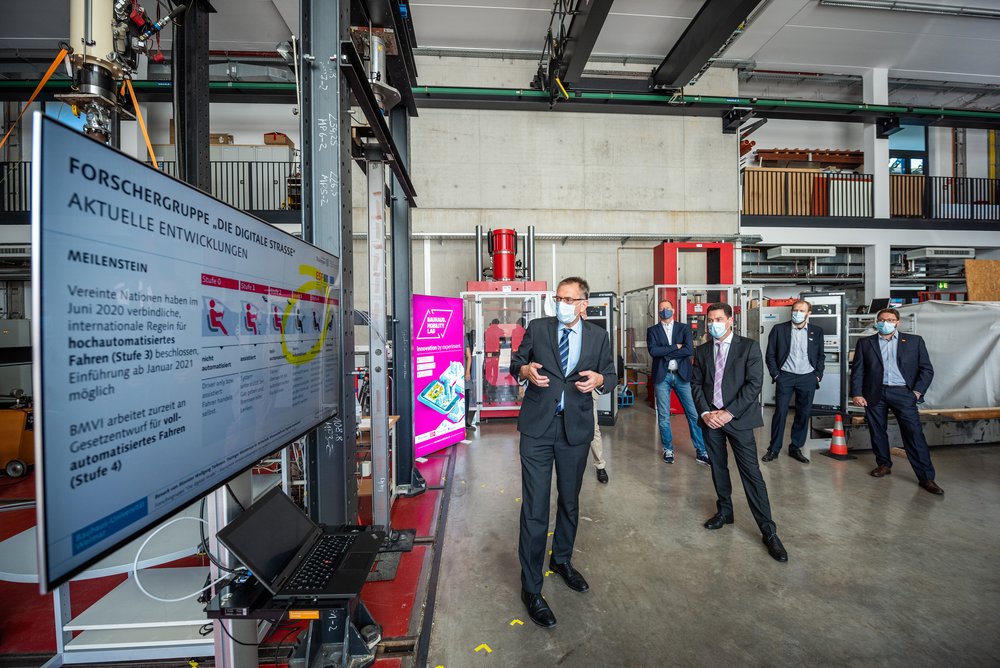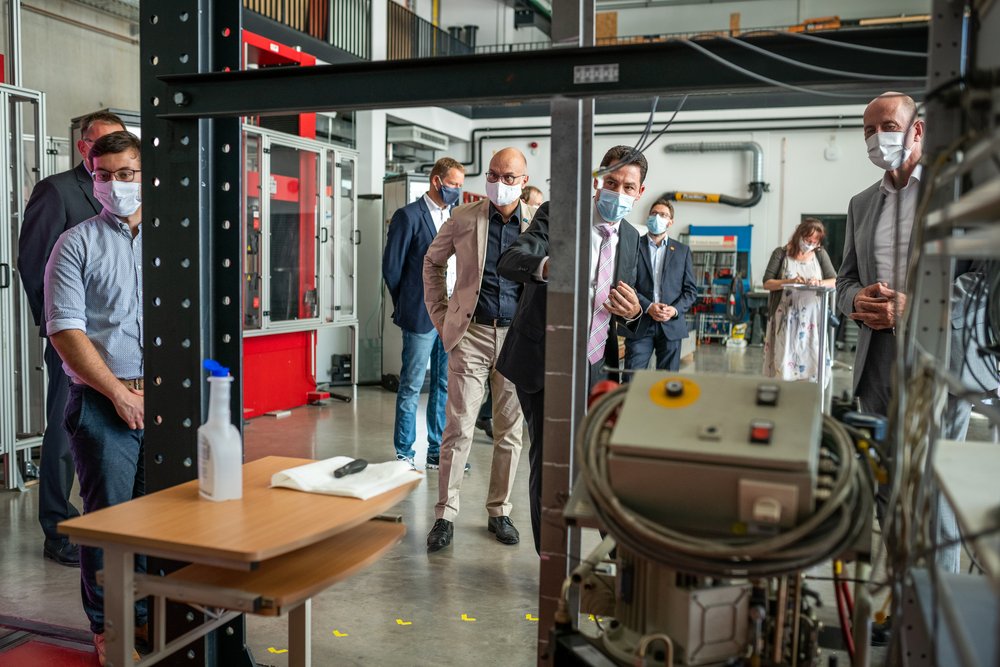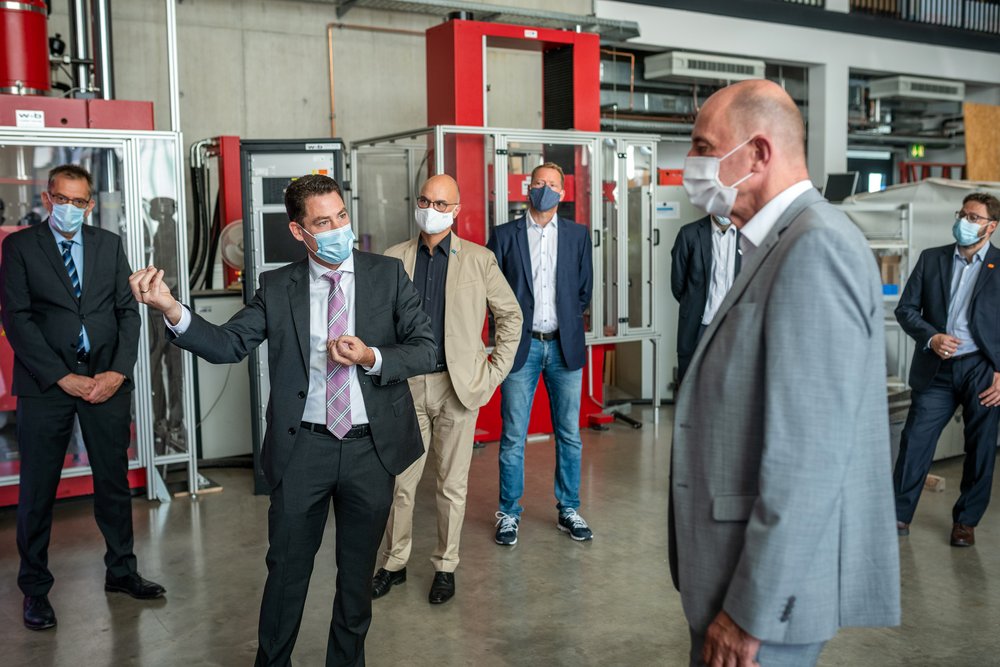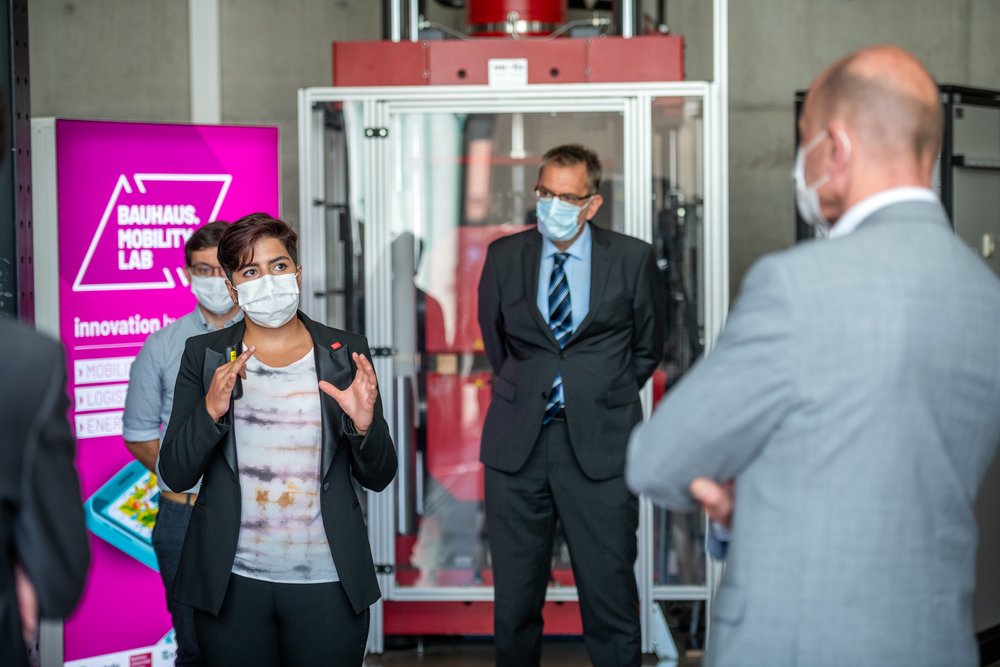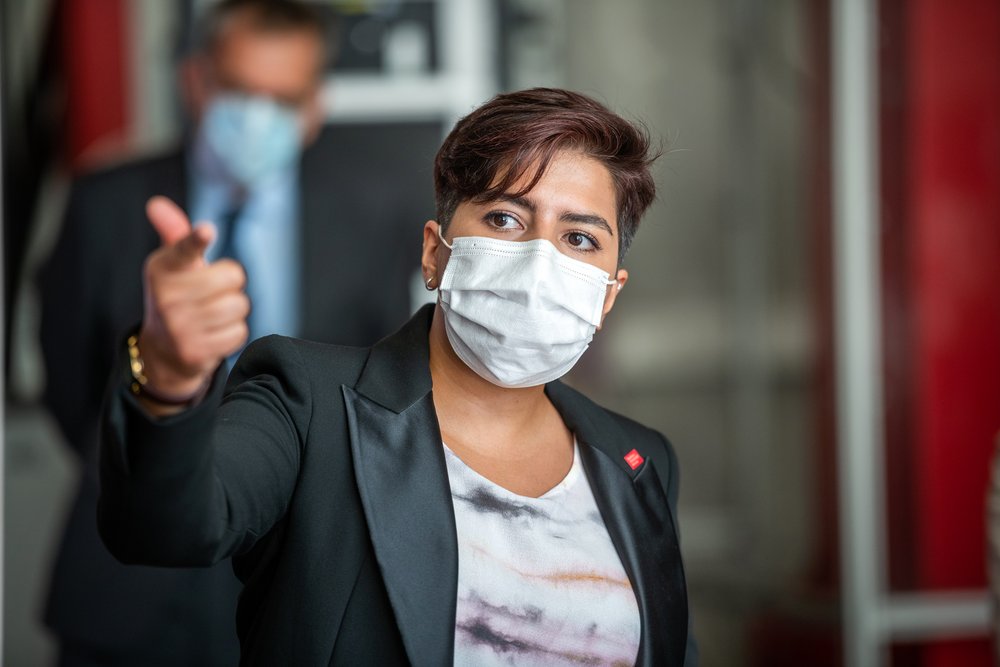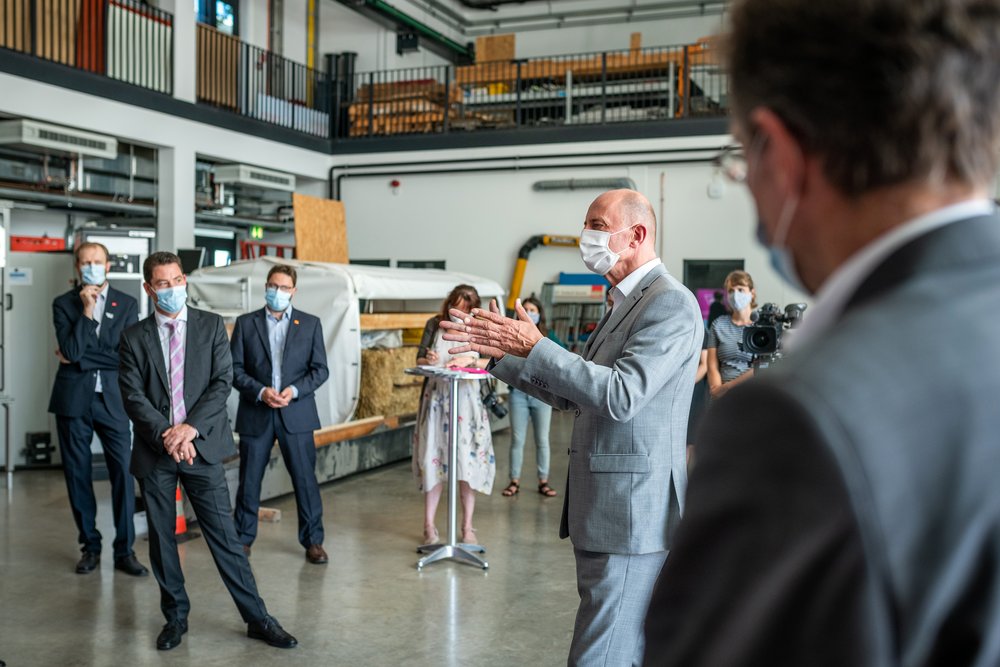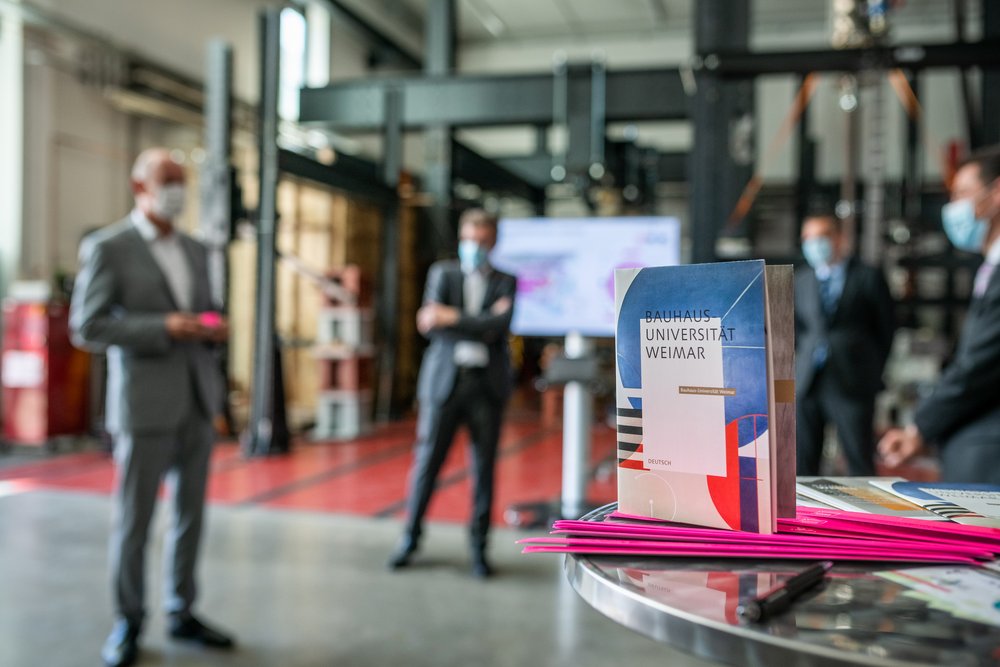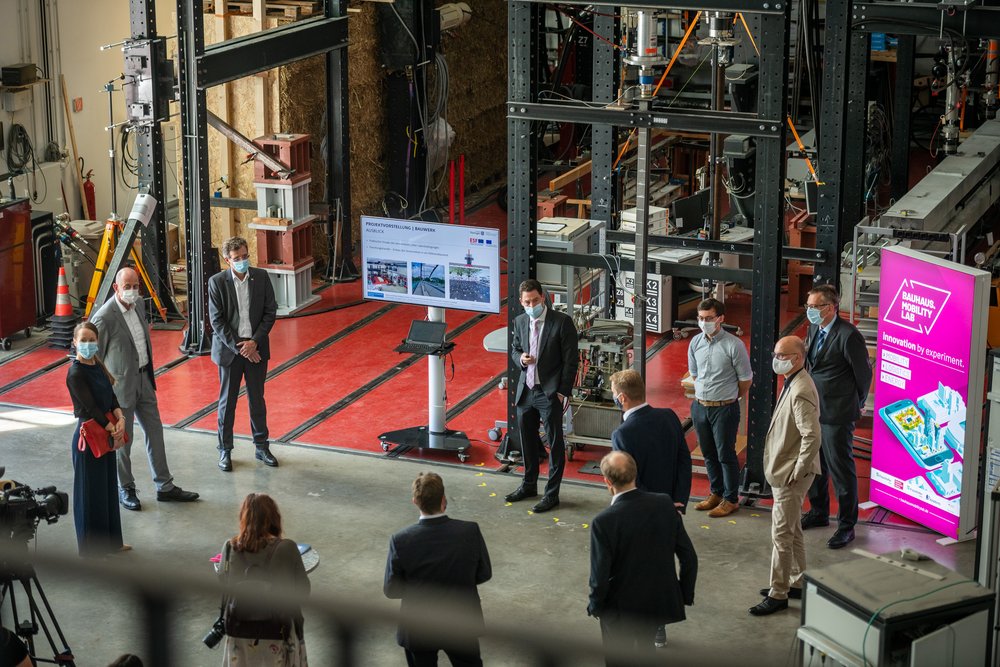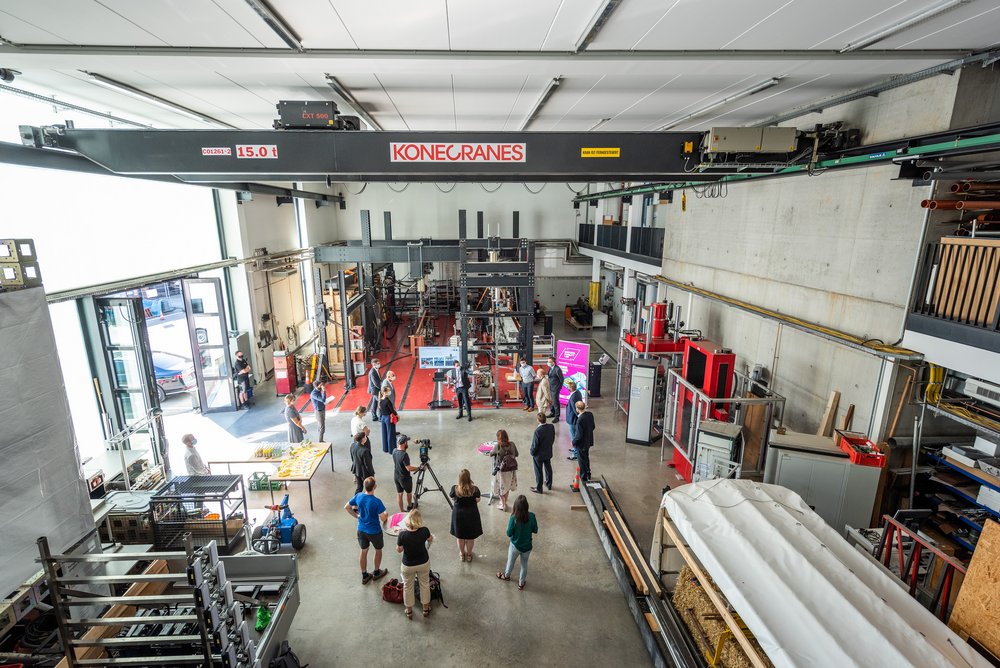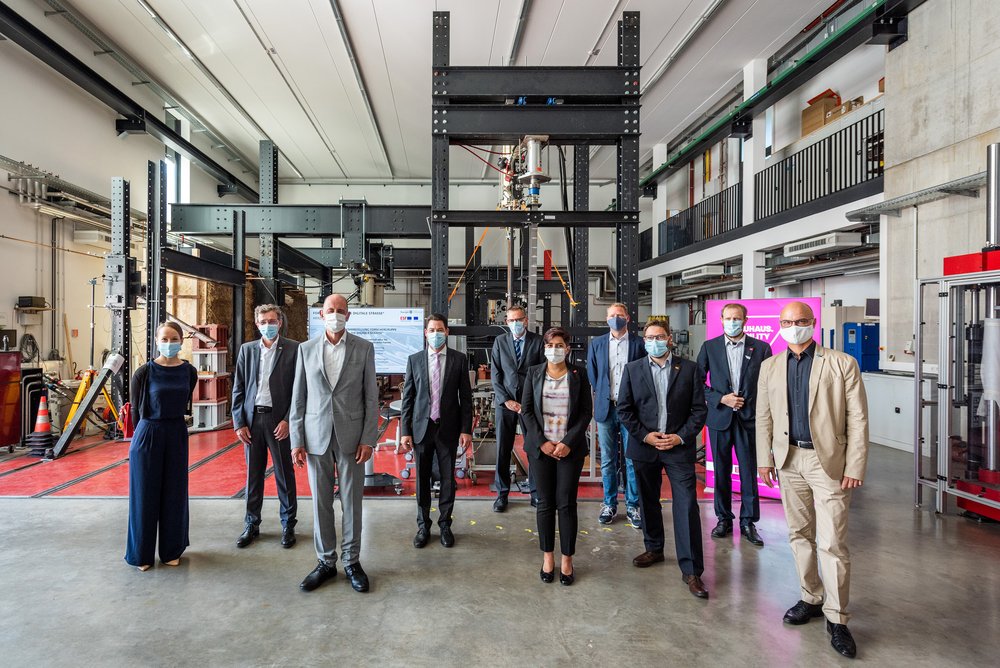Minister Tiefensee Visits Bauhaus-Universität Weimar: Strengthening Cooperation Between Science and Economics
The Thuringian Minister of Science and Economics Wolfgang Tiefensee visited the Bauhaus-Universität Weimar on Friday, 12 August as part of his summer tour. In keeping with the »Zukunft der Arbeit« (the future of work) theme of the tour, the University Directorate and the Minister discussed the challenges and opportunities of online teaching, particularly with regard to the current coronavirus conditions. Following the discussion, »Die digitale Straße« (the digital road) research group presented their intelligent networked transport infrastructure project results.
»We are delighted that the Minister visited our university during his summer tour«, said Prof. Dr. Winfried Speitkamp, President of the Bauhaus-Universität Weimar. »Our discussion was extremely enlightening and highlighted the university’s contributions to digital teaching, the digital work environment and digital research. We also exchanged ideas on Thuringian-wide cooperation in the fields of teaching and research, particularly in the engineering sciences.
The Bauhaus-Universität Weimar Presidium took advantage of Minister Tiefensee’s visit to evaluate the 2020 digital summer semester. University President Prof. Dr. Winfried Speitkamp, together with Vice-President Prof. Dr. Christian Koch and University Chancellor Dr. Horst Henrici assessed the technical changes that had to be made in a short period of time. Particular successful were the use of data protection-compliant open source software and the concept of »eTutoren« – specially trained students who supported instructors in implementing digital teaching formats. The eTEACH Network was also a topic of discussion in terms of promoting digital teaching across universities. The Thuringian network, based at the Bauhaus-Universität Weimar, offers a high quality further education programme in the field of digital university didactics. The programme includes courses on how to use learning platforms as well as workshops on teaching and learning with videos. This will help support and enrich Thuringian universities’ media-didactic programmes in accordance with the state’s strategy for digitisation. The Minister and the University Directorate agreed that this type of cooperation between universities should be increased even further in the future.
The following visit to the Bauhaus-Universität Weimar’s »Versuchstechnischen Einrichtung« (experimental technology facility) showed what cooperation between science and industry looks like in practice. At this point, Minister Tiefensee was given an insight into current research results on »Digitalisierung des Straßenverkehrs« (the digitalisation of road traffic): The goal of the research group, which is affiliated with the Faculty of Civil Engineering, is the digital networking of drivers, vehicles and the surrounding infrastructure. Through help from energy-autonomous, intelligent micro-sensors (MEMS), which are set to be installed in roads and bridges, traffic, environmental, and conditions data could be decentrally recorded and transmitted in real time to traffic management centres and vehicles themselves. Weimar scientists Prof. Dr.-Ing. Uwe Plank-Wiedenbeck (Professorship of Transport System Planning), Prof. Dr.-Ing. Matthias Kraus (Professorship of Steel and Hybrid Construction) and Prof. Dr.-Ing. Kay Smarsly (Professorship of Computing in Civil Engineering) are convinced that the project has the potential to optimise traffic flow and safety as well as the potential to reduce environmental pollution. At the same time, according to »Die digitale Straße« (the digital road) research group, damage to infrastructure could also be detected at an early stage, thus minimising repair costs. The project, funded by the EU, the Thüringer Ministerium für Wirtschaft, Wissenschaft und Digitale Gesellschaft (Thuringian Ministry for economics, science, and digital society), and the Thüringer Aufbaubank, has not only laid the foundations for highly automated and autonomous driving, but they have also tested effective traffic management strategies to reduce emissions and increase the lifespan of infrastructure.

